"My first home is my family. My second home is Kurdistan, my third home is humanity. I left my first home to protect the second and third. I came to die, because I want my children to live."
Gen. Hussein Yazdanpana
Introduction
Gen. Hussein Yazdanpana is the leader of the Parti Azadi Kurdistan ("Kurdistan Freedom Party," PAK) one of the major militant groups from Eastern Kurdistan (Rojhelat, Iran's Kurdistan region). The group, based in Erbil (in Southern Kurdistan, known as the Autonomous Region of Kurdistan in Iraq), is a main opponent of the Islamic Republic of Iran.
Yazdanpana was born on April 30, 1966, in a village called Saqzloo, east of Bokan city, in Eastern Kurdistan. He comes from a long lineage of fighters for the freedom of Kurds and their right to self-determination. Back in 1881, Yazdanpana's grandfather Fayzulla Bayg led a thousand Kurdish fighters against the Qajar Dynasty.

(Source: Twitter)
Following is an overview of Gen. Hussein Yazdanpana's main political achievements and views on the recent developments in Iran and in the region:
1979 Kurdish Uprising
In March 1979, a month after the "victory" of the Islamic revolution, a Kurdish uprising began against the newly established revolutionary government, which immediately responded by brutally cracking down on the Kurdish population. At the time, Yazdanpana was just 13 years old. "I still remember, when the IRGC took two Kurdish citizens and shoot at them, one of them was Qadir Salmi, a 15-year-old friend of mine... I will never forget the day our city was attacked, and they even hit the mountains where people were taking shelter. They were firing with long-range artillery, and fighter planes flew over the city, breaking the sound barrier. I returned to the city [of Sna, Sanandaj] with a number of friends from out of town. The city was occupied. We saw hatred in the eyes of the invaders. Our hearts were filled with sorrow. Iranian forces began arresting and executing young people in the city. I, myself, was arrested at that age and taken to prison," Yazdanpana said.
On March 30 and 31, 1979, when the referendum on the Islamic Republic was held, the Kurds boycotted it. "[People in] Kurdistan never hung a picture of Khomeini and never saw him as our leader. We were against the theocratic system and against the Islamic Republic's domestic and foreign policies. Furthermore, Kurdistan has never supported Khomeini in occupying the U.S. embassy in Tehran," Yazdanpana stressed.
Khomeini's "Firman" Against The Kurds
In August 1979, Khomeini issued a firman ("order"), authorizing the massacre of Kurdish people, whom Khomeini called koffar ("unbelievers").[1] '"Those with him [Prophet Mohammad] are ruthless against the unbeliever, merciful among themselves' [Verse 29, Surah Al-Fath, the Quran]. These subversives are unbelievers. They are among the unbelievers in Kurdistan and other places. The government must deal with them harshly, the gendarmerie must deal with them harshly, and the army must deal with them harshly... We shall deal with them harshly. We want to carry out God's order and we shall,"[2] Khomeini said. He then added that Kurdistan's Komala Party and the Kurdish Democratic Party were "like poison to the health of the revolution... No trace of them should be left in the country."[3]
With his speech, Khomeini declared himself military commander-in-chief and gave Iran's armed forces the order to wage jihad against the Kurds. Shortly after issuing the "firman," the army, the police, and IRGC units were deployed throughout Kurdish cities and towns. Kurds fled in horror to the Zagros Mountains, as the regime forces carried out mass killings of unarmed civilians, including pregnant women. They imprisoned thousands of Kurds and executed thousands of them. People were even executed on hospital benches. The military campaign to exert control over the Kurdish region between 1979-1983 resulted in almost 10,000 deaths (almost 1,200 of them were political prisoners and were executed).[4]
Yazdanpana was a young teen at the time and witnessed the guerrilla war between his fellow Kurds and Khomeini's army. In that period, his two older brothers Rashid and Saeed were already Peshmerga fighters.
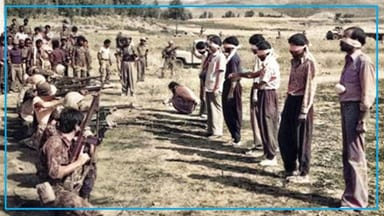
Firing squad executing Kurdish people after Khomeini's firman in 1979. (Source: Hengaw)
Yazdanpana's Arrest By The IRGC In 1982
In September 1982, Yazdanpana was arrested by the IRGC. "I was 16 years old, and I was about to take an exam. Some IRGC officers came into the school and took me along with three of my classmates. Soon after, another classmate took my bicycle and rode to my home to tell my mother what happened. I still remember that evening when my mother came to the intelligence headquarters. The guards threatened her, insulted her, and pushed her away. They imprisoned me for three years. After me, they also arrested my younger sister. At the door of the [police] barracks, a Revolutionary Guardsman had beaten my father. Every day, I think of that moment when the guard hit my father's delicate white and red cheeks."[5]
While still serving his three years of prison service, Yazdanpana's older brother Rashid was killed by the IRGC on the battlefield. When young Yazdanpana was released from prison, he decided to become a Peshmerga fighter. "Joining the Peshmerga was not in any way a personal revenge, but a duty for the sake of Kurdistan's freedom and independence. For Kurdish youth, Peshmerga is the way to defend the country and its people and fight against occupation, colonialism, and murder. Peshmerga is the path to the freedom and independence of Kurdistan, it is a moral and virtuous duty," Yazdanpana stressed.[6]
Yazdanpana Moves To Southern Kurdistan
The situation of the Kurds in other parts of occupied Kurdistan was not any better. In the Iraqi Kurdish region, known to Kurds as Basur (meaning Southern Kurdistan), Kurds were suffering enormously under the terror regime of Saddam Hussein. It is estimated that from 1980 to 1991, more than 200,00 Kurds were killed. The brutality of the Saddam Hussein regime took a new turn when he ordered his army to attack Kurdish villagers with chemical gas. On 16 March 1988, the Saddam Hussein government bombed the town of Halabja with chemical weapons, reportedly killing over 5,000 and injuring more than 10,000.
After many air attacks, the international community came to the aid of the Kurds of Basur by establishing a no-fly zone over the Iraqi Kurdish region from 1991 until 2003. The move gave the Kurds of Basur a de facto autonomous state, which led to the birth of the Kurdistan Region Government (KRG), based in Erbil, in 1992. This encouraged Hussein Yazdanpana to move to Basur, where he has been living since the 1990s.
The Rise Of The Kurdistan Freedom Party (PAK)
On May 20, 1991, Saeed Yazdanpana, who is the brother of Gen. Hussein Yazdanpana and two years older than Hussein, established the Kurdistan Freedom Party (PAK), which calls for the establishment of a Kurdish sovereign state in the Kurds' ancestral homeland and for the downfall of the Islamic Republic of Iran. A few months after PAK was established, on September 9, 1991, Saeed Yazdanpana was assassinated by Iranian agents operating in Suleymaniyeh, in Iraqi Kurdistan. Consequently, Hussein was elected president of PAK and General Commander of its armed wing.
The root of PAK goes back to Qazi Muhammad, a Kurdish leader who founded the Democratic Party of Iranian Kurdistan and was president of the short-lived Kurdish self-governing Republic of Mahabad, which lasted from January 22, 1946 to December 15 of the same year. The Pahlavi dynasty hanged Qazi Muhammed for treason in 1947.
In 2006, Ali Qazi, son of Qazi Muhammad, joined PAK and was elected to the party's congress as its leader. However, in 2017, due to health problems, Hussein Yazdanpana was re-elected as PAK president.
The PAK is a national liberation freedom party fighting to achieve national sovereignty. Its aim is to establish a Greater Kurdistan unifying more than four million Kurds, who are scattered in four occupied parts of Kurdistan across Iran, Iraq, Syria, and Turkey. The PAK is a secular center-left movement, and its program is based on gender equality, the democratic rule of law, peace, and co-existence with all ethnic and religious minorities living in the Kurdish region. PAK believes in a parliamentary system and the people's right to choose their own representatives.
It is worth noting that the PAK is the fastest-growing Kurdish party, and PAK fighters are probably among the most effective and prepared armed forces in the region.

Qazi Muhammad, 1 May 1893 – 31 March 1947. (Source: Twitter)
Female PAK Fighters
On February 5, 2023, the Saudi-owned Al-Arabiya network aired a report about female PAK fighters. The report said that 200 women from PAK are attending training camps in Southern Kurdistan (i.e., Iraqi Kurdistan), in which they are trained in the use of weapons and attend lectures about politics and civil rights. It said that many of the women had participated in the anti-regime demonstrations and were tortured and abused by Iran's security forces.
The reporter, Sara Benaichouba, said: "200 girls from PAK – one of the parties of the Iranian Kurdish opposition that is active abroad – are deployed to three training sites. Their training includes combat sports, the use of weapons, and lectures about politics and legal rights. Mahsa [Jina] Amini, whose killing sparked demonstrations in Iran, still inspires many girls and women who believe in the slogan 'Woman, Life, Freedom.' Some of them could not stay in Iran after they had taken part in demonstrations, and were threatened and even attacked by the Iranian security services, so they moved here to Iraqi Kurdistan..."
A PAK fighter added: "Girls who were just recently demonstrating on the streets of Iran's cities decided to leave, but they fear for their families, in case the intelligence agencies of the Iranian regime find out who they are. I did not only participate in the demonstrations – I led them. I could no longer live there freely because the Iranian forces exposed me, and I was sentenced to prison. On the first day, when we returned from Jina Amini's funeral to Sanandaj [the capital of Kurdistan Province in Iran], we met on Iqbal Square and we chanted [Kurdish] slogans like 'Women, Life, Freedom,' [Jin, Jiyan, Azadi, in Kurdish]. Then the regime's forces came to disperse us with batons. They arrested all of us, more or less, and they took us to their headquarters. I was subjected to torture – beatings, electric shocks, and other things... My cousin... was raped and abused in front of her brother. There are hundreds of similar cases. These people lose hope, break down, and they cannot go on living. We witnessed extremely inhumane acts by the Iranian forces during the current revolution."[7]
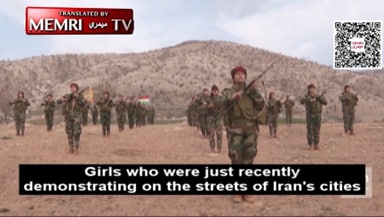
(See MEMRI TV clip No. 10112, Female Fighters Of The Kurdish Opposition To Iranian Regime Train In Camps In Iraqi Kurdistan: We Participated In The Demonstrations But Had To Leave Iran Due To Security Forces Crackdown, February 5, 2023)

(See MEMRI TV clip No. 10112, Female Fighters Of The Kurdish Opposition To Iranian Regime Train In Camps In Iraqi Kurdistan: We Participated In The Demonstrations But Had To Leave Iran Due To Security Forces Crackdown, February 5, 2023)
PAK's Fight Against ISIS
The PAK gained extensive military experience during their war against ISIS in the Nineveh governorate in Iraq, which lasted more than two years. In 2016, the Kurdish media outlet Rudaw reported: "A number of Kurdish groups from outside the Kurdistan Region joined forces to help the Peshmerga [i.e., the military of the Kurdistan Regional Government] to defend the borders of the autonomous Kurdistan Region in the summer of 2014 when ISIS militants launched a multi-front offensive against the Kurds in Nineveh and Kirkuk. Among these groups were PAK and the Kurdistan Democratic Party of Iran (KDPI)."
In the same article, Rudaw explained that U.S. and European military advisers trained PAK members and Peshmerga forces, in weapons and explosives for their participation in the fight against ISIS. Yazdanpana himself told the Associated Press that U.S. and European military advisers "helped and trained" the PAK within the framework of the fight against ISIS. "PAK fighters had three rounds of training by American advisers between March and September 2015 at the front line where they are deployed in central Kirkuk province. The group's fighters went through further rounds of training alongside other Iraqi Kurdish fighters... PAK fighters control some 15 kilometres (9.3 miles) of front-line territory west of the Iraqi city of Kirkuk as well as some positions east of the city of Mosul," Yazdanpana was quoted as saying in 2016.
It is worth noting that PAK fighters were also among the first to arrive in Kobani to help the Kurds of Rojava (Syrian Kurdish province) against ISIS.
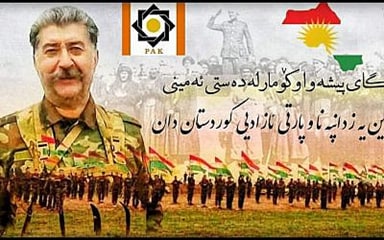
(Source: Twitter)

(Source: PAK archive)
The "Pirde Epic"
On October 20, 2017, Peshmerga forces along with PAK fighters, under the command of Gen. Yazdanpana, repelled tens of thousands of Iraqi troops and Hashd Al-Shaabi ("Popular Mobilization Forces"), an Iraqi state-sponsored and IRGC-backed Shia umbrella armed organization, which were about to advance towards Erbil.
"The Iraqis, with the support of a regional force [i.e. Iran], had reoccupied the [oil-rich] city of Kirkuk on October 16, 2017, and the Peshmerga forces were able to defeat the attackers, repel them, inflicting heavy losses on them and stop their progress in a heroic battle called 'Pirde Epic,' in reference to the town near which the battle took place of [Pirde is located to the northwest of Kirkuk governorate, and is the place where the PAK has its own bases]. The battle witnessed the destruction of an American Abrams tank, which was in the possession of the Popular Mobilization militia," Kurdish media outlet Ark News wrote.[8]
In the "Pirde epic," Kurds thwarted "the plan to eliminate the political entity of the Kurdistan Region," after the people of the Kurdistan Region had voted "yes" to independence in a non-binding referendum, held on September 25, 2017.[9]
General Directorate of Counterterrorism in the Kurdistan Region wrote in a statement: "The Pirde epic is a symbol of the steadfastness of the people of Kurdistan, and a failure of a hostile scheme... On October 20, 2017, was the day when the Kurdish people and the Kurdistan Region regained their dignity, and it was a graveyard for enemies."[10]
It is worth noting that PAK fighters played a major role in stopping the advance of Iraqi troops and Hashd Al-Shaabi toward the Kurdish capital of Erbil, at the Alton Kopri Bridge, which links Kirkuk and Erbil.
IRGC's Airstrike Against PAK Bases
On September 28, 2022, right after the start of the ongoing uprising against the Islamic Republic, the IRGC conducted drone, artillery, and ballistic missile attacks, targeting the positions of PAK, KDPI, Komala Party of Iranian Kurdistan, in the Autonomous Region of Kurdistan in Iraq.[11] Describing the attack, the Revolutionary Guard's Deputy Commander for Operations, Abbas Nilforoushan, stated that the IRGC "smashed the center of sedition in the Kurdistan region with point-blank missiles."[12]
On October 8, referring to Kurdish militant groups, the IRGC also tweeted: "The armored and special forces units of the Islamic Republic of Iran's armed forces are ready to be deployed to free this region of these evils forever, in case of inability of some neighbors [i.e., Iraq] in expelling elements of separatist terrorists and hypocrites stationed in the border areas."[13]
According to news agencies, 13 people were killed and 58 wounded in the IRGC's attacks near Erbil and Sulaimaniya.[14]
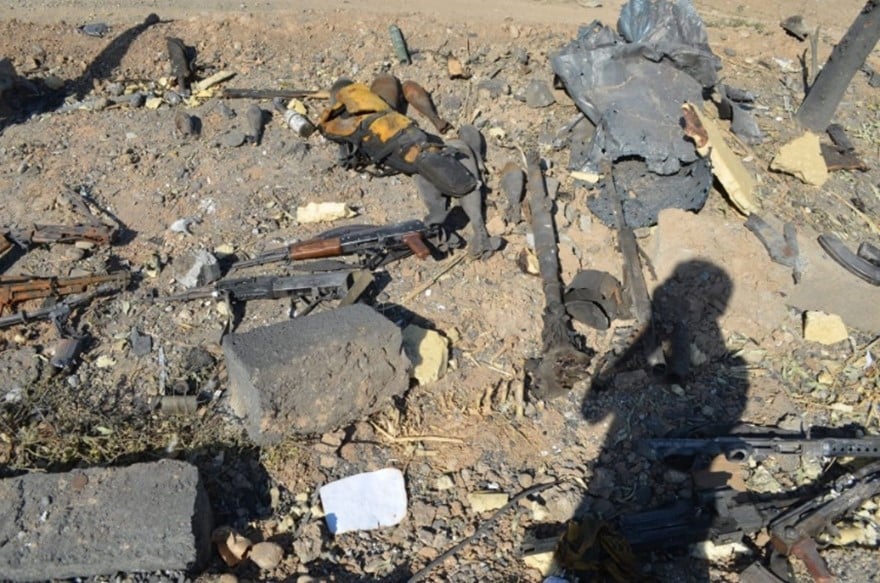
The outcome of the IRGC's missile attacks on the PAK's Pirde Base, September 28, 2022. (Source: PAK archive)

The outcome of the IRGC's missile attacks on the PAK's Pirde Base, September 28, 2022. (Source: PAK archive)

The outcome of the IRGC's missile attacks on the PAK's Pirde Base, September 28, 2022. (Source: PAK archive)
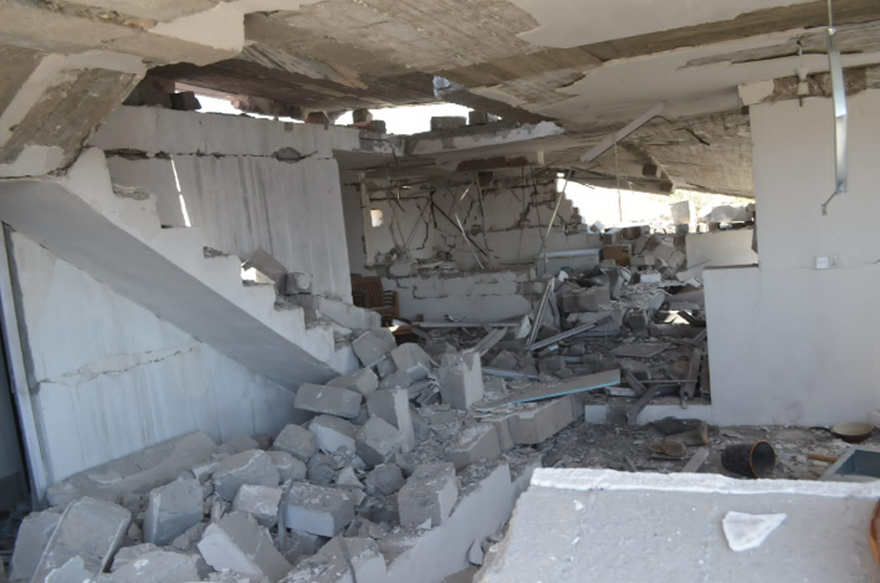
The outcome of the IRGC's missile attacks on the PAK's Pirde Base, September 28, 2022. (Source: PAK archive)

The outcome of the IRGC's missile attacks on the PAK's Pirde Base, September 28, 2022. (Source: PAK archive)

The outcome of the IRGC's missile attacks on the PAK's Pirde Base, September 28, 2022. (Source: PAK archive)

The outcome of the IRGC's missile attacks on the PAK's Pirde Base, September 28, 2022. (Source: PAK archive)

The outcome of the IRGC's missile attacks on the PAK's Pirde Base, September 28, 2022. (Source: PAK archive)

The outcome of the IRGC's missile attacks on the PAK's Pirde Base, September 28, 2022. (Source: PAK archive)
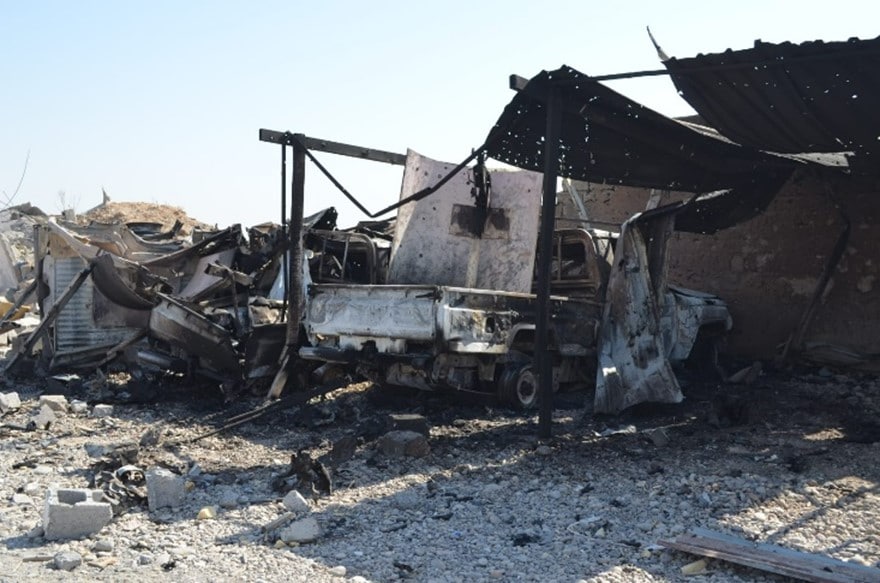
The outcome of the IRGC's missile attacks on the PAK's Pirde Base, September 28, 2022. (Source: PAK archive)
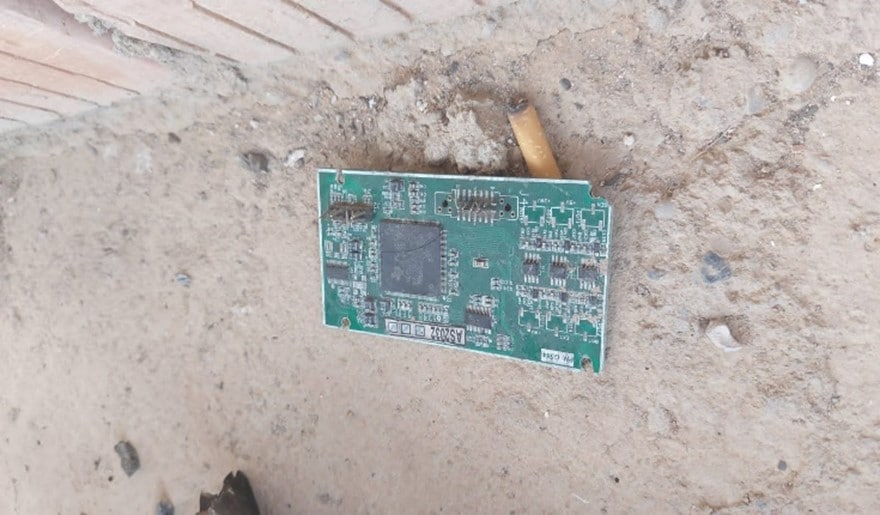
IRGC's attack on the PAK's Pirde Base, September 28, 2022. (Source: PAK archive)
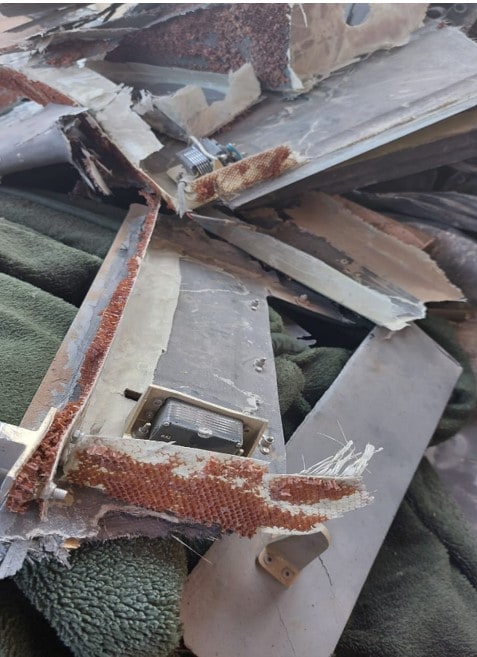
IRGC's attack on the PAK's Pirde Base, September 28, 2022. (Source: PAK archive)

IRGC's attack on the PAK's Pirde Base, September 28, 2022. (Source: PAK archive)

IRGC's attack on the PAK's Pirde Base, September 28, 2022. (Source: PAK archive)

IRGC's attack on the PAK's Pirde Base, September 28, 2022. (Source: PAK archive)

IRGC's attack on the PAK's Pirde Base, September 28, 2022. (Source: PAK archive)
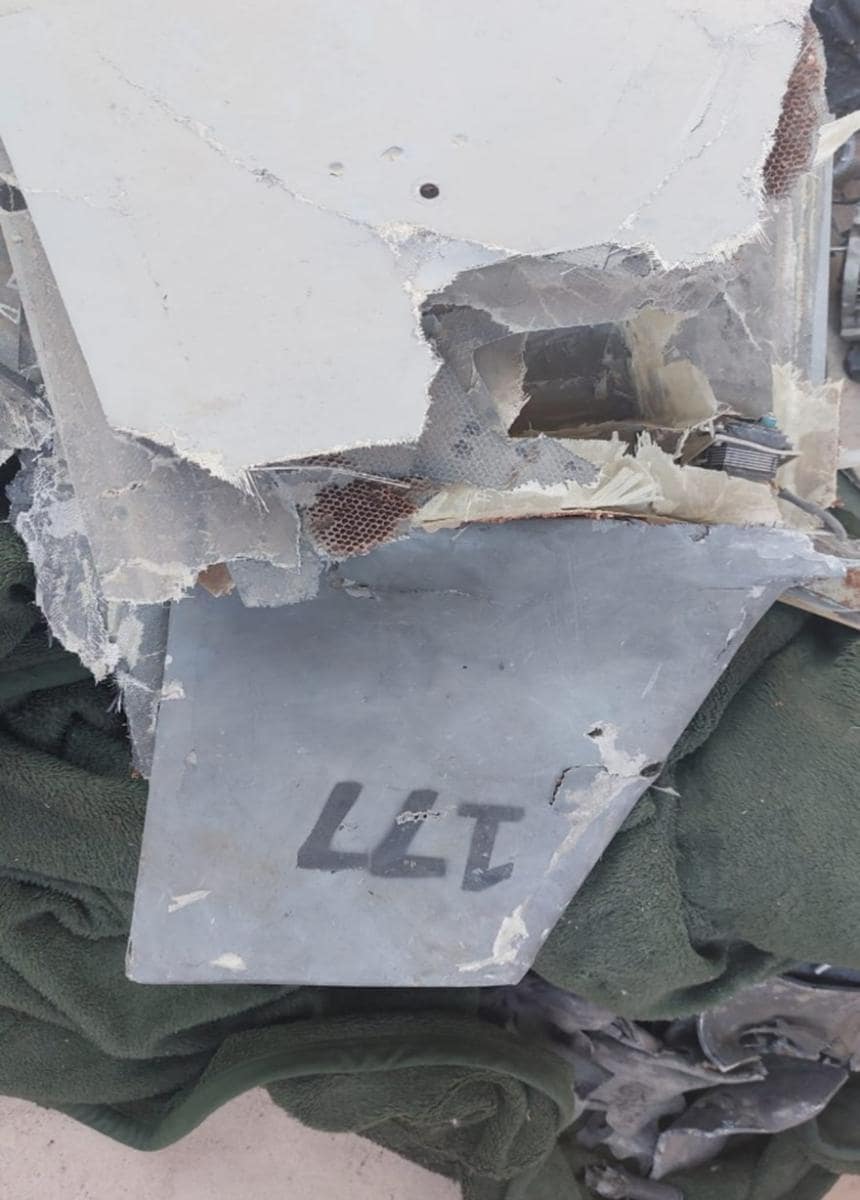
IRGC's attack on the PAK's Pirde Base, September 28, 2022. (Source: PAK archive)
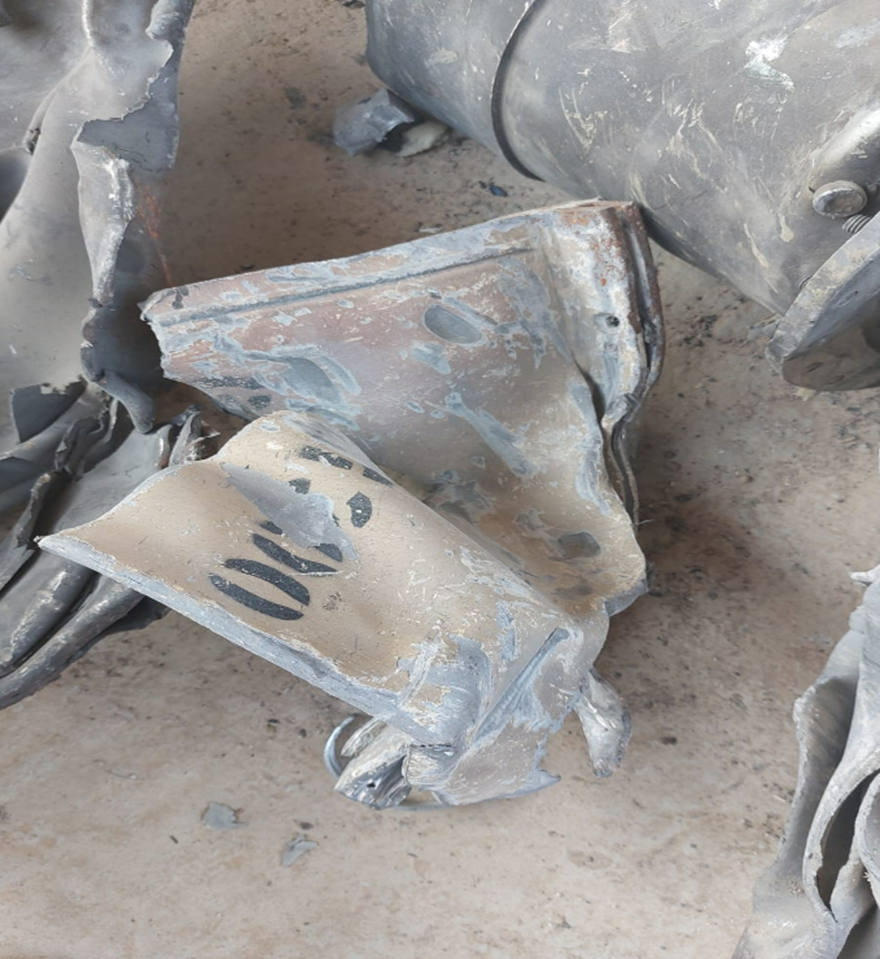
IRGC's attack on the PAK's Pirde Base, September 28, 2022. (Source: PAK archive)

IRGC's attack on the PAK's Pirde Base, September 28, 2022. (Source: PAK archive)
Uprising In Iran
The recent uprising against the Islamic republic is the result of the regime's oppression and crime against the people over the years. The PAK has been engaged in the struggle against the Iranian regime for decades. However, the movement has not made any armed contribution to the ongoing revolt.
Yazdanpana supports regime change in the country and the demands for the self-determination of Kurds, Balochs, Azeri, and Ahwazis, which have been subjugated and oppressed through a brutal assimilation policy.[15] He believes that the dissolution of the Iranian state into ethno-states will democratize the region, slow down terrorism and militarism, strengthen the economy and trade, and bring regional peace.[16]
According to Yazdanpana, if a referendum were held in Rojhelat (Iran's Kurdistan region), more than 90 percent of voters would choose independence.[17] Yazdanpana is unequivocal on Kurdish statehood and is convinced that all four parts of divided Kurdistan must unite: "After all those attempts to disconnect us, we are still one people. We suffered under repressive governments, but they could not turn us into Iraqis, Iranians, Syrians and Turks. There will be a day, either in my lifetime or beyond, that the borders between the different parts of Kurdistan will be erased."[18]
*Suzan Quitaz is a Kurdish-Swedish journalist and researcher on Middle Eastern affairs.
[1]See MEMRI Daily Brief No. 447, The Execution Of Kurds By The Islamic Republic Of Iran, by Himdad Mustafa, January 12, 2023.
[2] Iranwire.com/en/politics/104686-blood-soaked-fatwas-how-khomeini-turned-homicide-into-policy-in-iran-in-10-years/, June 9, 2022.
[3] Komalainternational.org/2020/08/11/the-world-never-forgets-the-historical-carnage-of-kurds-by-the-radical-bloodthirsty-regime-of-iran, August 11, 2020.
[4] See MEMRI Daily Brief No. 447, The Execution Of Kurds By The Islamic Republic Of Iran, by Himdad Mustafa, January 12, 2023.
[5] Interview with General Yazdanpana.
[6] Interview with General Yazdanpana.
[7] See MEMRI TV clip No. 10112, Female Fighters Of The Kurdish Opposition To Iranian Regime Train In Camps In Iraqi Kurdistan: We Participated In The Demonstrations But Had To Leave Iran Due To Security Forces Crackdown, February 5, 2023.
[8] Arknews.net/en/node/39471, October 21, 2022.
[9] Arknews.net/en/node/39471, October 21, 2022.
[10] Arknews.net/en/node/39471, October 21, 2022.
[11] Interview with Michael Arizanti, London, February 14, 2023
[12] Iranintl.com/en/202302102981, February 10, 2023.
[13] Twitter.com/Sepah_Com/status/1578651936311500800, October 8, 2022; Rudaw.net/english/middleeast/iran/081020221, October 8, 2022.
[14] Reuters.com/world/middle-east/irans-revolutionary-guards-targeted-terrorists-iraq-irna-2022-09-28, September 28, 2022.
[15] See MEMRI Daily Brief No. 428, MEMRI The Islamic Republic Of Iran Will Collapse Only If Its Ethnic Minorities Are Supported, by Himdad Mustafa, November 11, 2022.
[16] Twitter.com/husenyazdanpana/status/1617926919294709760?s=46&t=MhVapYlIqX—GYkFfWNYvg, January 24, 2023.
[17] Interview with General Yazdanpana.
[18] Narratively.com/meet-a-kurdish-commander-who-stares-down-isis-every-day, March 3, 2016.




